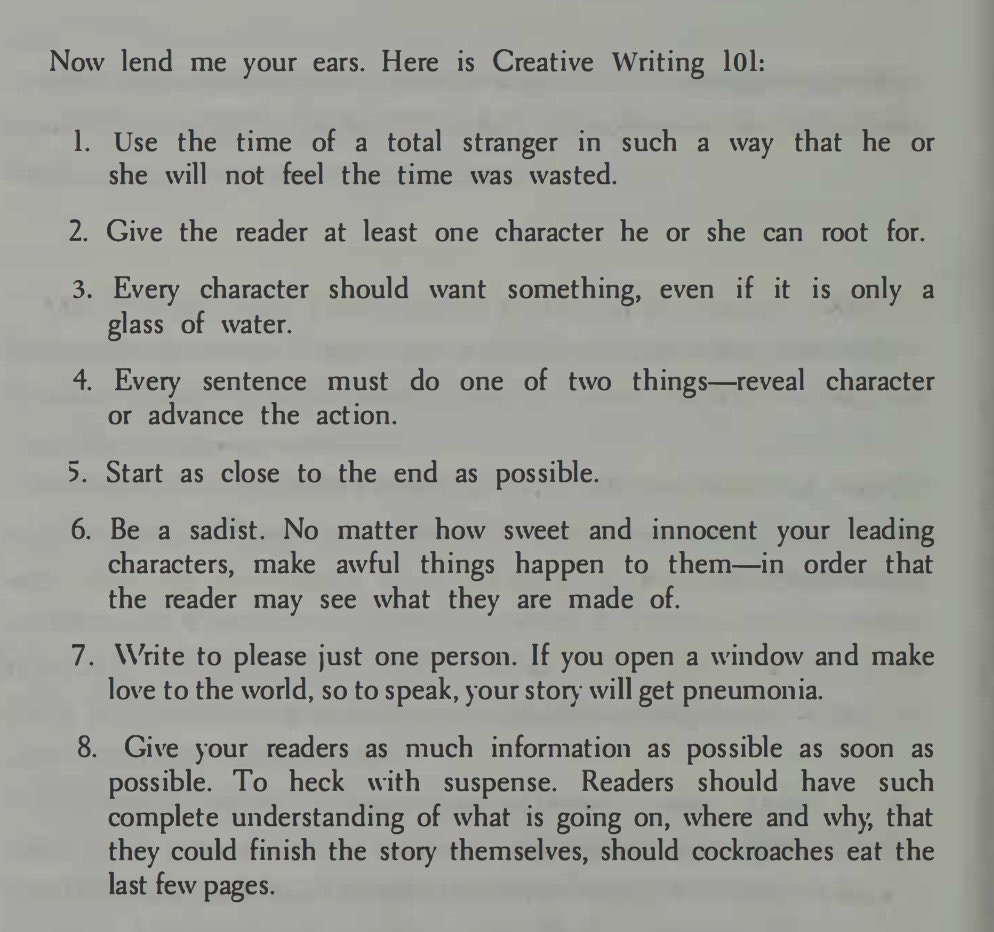(Blogtober Day 9)
Something I maybe have a bad habit of doing is finding a concept, opinion, or soft guideline talked about in one creative industry and considering how it might be applicable to game design and development. I’ve done this almost subconsciously for a while and I tend to keep it to myself these days as although I could probably talk about games and game development every hour of the day, many of my friends and acquaintances, fellow developers or not, usually don’t want to. But I guess that is one advantage of this blog. As a reader you get to opt-in to these thoughts or not.
Earlier today I came across this sort of list of guidelines or things to consider in creative writing generated by Kurt Vonnegut, a fairly prolific writer best known for the novel The Slaughter House Five, but he penned several others of note as well.

Here are my (probably overly-simplified) thoughts on how we could apply some of these things to gaming.
“Use the time of a total stranger in such a way that he or she will not feel the time is wasted.”
This one is pretty easy. Don’t waste a player’s time. Try to avoid filler content, and if possible have everything a player has to do have meaning and purpose.
“Give the reader at least one character he or she can root for.”
This one feels very important, and something I think some games could be better at. For the more narrative based games that have a main character (or cast of characters), establishing reasons why we should care and root for them is vital, but competing with a player’s agency (element of chaos) can sometimes be a challenge. But even for games that utilize the technique of trying to let the player feel like they are inhabiting a more tableau style main character, giving them agency to effectively make the character act in a way that makes them appealing is just as important. Which I feel usually means driving the player to make choices for the character and establishing a sense of a defined character.
“Every character should want something, even if it is only a glass of water.”
Again a hugely important thing to consider in games, particularly with NPCs. From the run in the mill thug, to the ultimate antagonist every character has to feel like there is a driving force that compels them. Considering this also usually makes writing bark-type dialog much easier.
“Every sentence must do one of two things – reveal character or advance the action.”
I could see this one applying to games in a number of ways. But the first one that came to mind is avoiding having mechanics in a game just to have them. They should all feel like they push the player forward, progressing something in the game and leading them to a finale.
And because it’s Blogtober and I feel like stretching this topic out into a few posts, I’ll take a look at five through eight tomorrow…